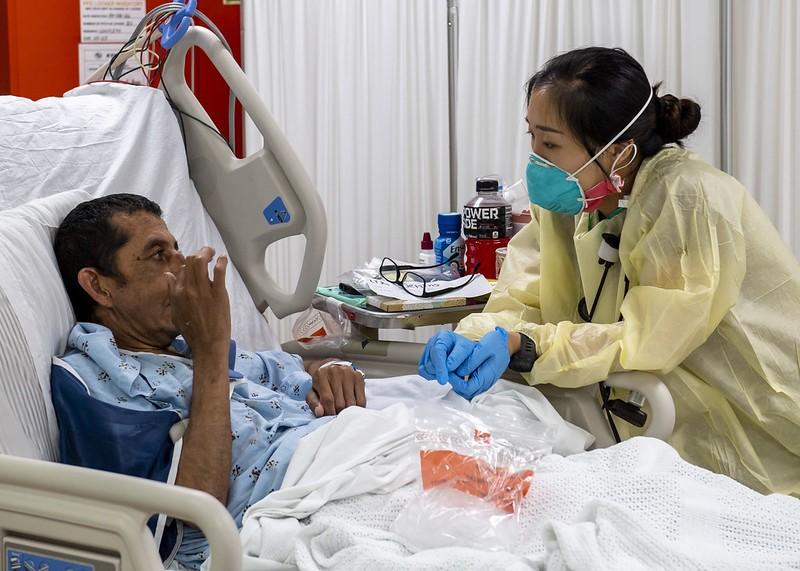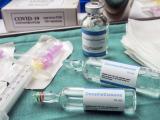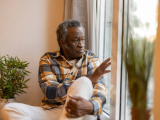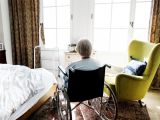Starting the antiviral drug nirmatrelvir-ritonavir (Paxlovid) 0 or 1 day after COVID-19 symptom onset halved 28-day all-cause death and hospitalization rates compared with waiting 2 or more days, University of Hong Kong researchers report in Nature Communications.
The analysis was based on the electronic medical record data of all 87,070 high-risk adult outpatients and inpatients prescribed Paxlovid in Hong Kong from March 16, 2022, to January 15, 2023, a period dominated by the SARS-CoV-2 Omicron variant.
The researchers noted that reports of COVID-19 symptom and/or viral burden rebound (VBR) after completion of the standard 5-day Paxlovid course have led to debate about the optimal initiation and dosage of the treatment.
"Due to early suppression of viral replication by nirmatrelvir/ritonavir, the host adaptive immune response may not have had sufficient stimulus and time to fully develop by the end of antiviral therapy, thus allowing any remnant virus to subsequently resume replication and shedding," they wrote. "However, this hypothesis has not hitherto been tested against real-world clinical data."
5% vs 7% death, hospitalization rates
Crude cumulative incidence of 28-day all-cause death or hospitalization was 5.1% for early initiators and 6.6% for delayed users. Initiation of Paxlovid at or 1 day after COVID-19 symptom onset halved the rate of all-cause death or hospitalization compared with starting the drug at 2 days or later (absolute risk reduction [ARR], 1.5%; relative risk [RR], 0.77).
The risk was also significantly lower if Paxlovid was started within 2 days of symptom onset compared with 3 or more days (ARR, 2.3%; RR, 0.70) and within 3 versus 4 or more days (ARR, 2.8%; RR, 0.66).
Risk reduction was also consistently seen across sex, vaccination status, concomitant corticosteroid use, immune system status, or whether the date of symptom onset was considered the index date.
The researchers said that COVID-19 vaccination may help protect against VBR after early Paxlovid initiation. "This is consistent with the ability of vaccines to prime for a faster adaptive immune response after infection and accelerate viral clearance, reducing the risk that early use of nirmatrelvir/ritonavir could prematurely suppress viral load, hinder the development of a robust immune response to the breakthrough pathogen, and result in subsequent VBR," they wrote.
The observed benefit from administering nirmatrelvir/ritonavir as soon as possible after diagnosis or symptom onset may be attributable to an early suppression of viral replication, which in turn reduced the risk of subsequent deterioration to severe disease and death.
The viral-load trajectory plot showed an increase in average viral load after an initial reduction among early Paxlovid initiators during days 6 to 8 that was not seen in delayed starters. The authors said that starting the drug at 0 or 2 days may be associated with a significantly higher risk of viral rebound (ARR, -1.08%), although this estimate was based on limited sample sizes and thus is highly uncertain.
Early suppression of viral replication
"The observed benefit from administering nirmatrelvir/ritonavir as soon as possible after diagnosis or symptom onset may be attributable to an early suppression of viral replication, which in turn reduced the risk of subsequent deterioration to severe disease and death," the researchers wrote.
To ensure early diagnosis after symptom onset, the authors said it's imperative that people at high risk for poor COVID-19 outcomes have easy access to sensitive and specific rapid antigen tests. Also, healthcare systems should continue to support patient and provider awareness of Paxlovid and facilitate equitable access through community test-to-treat programs.
"Patients should continue to initiate nirmatrelvir/ritonavir early after symptom onset or diagnosis to better protect against the more serious outcomes of hospitalization and mortality," the researchers concluded.




















